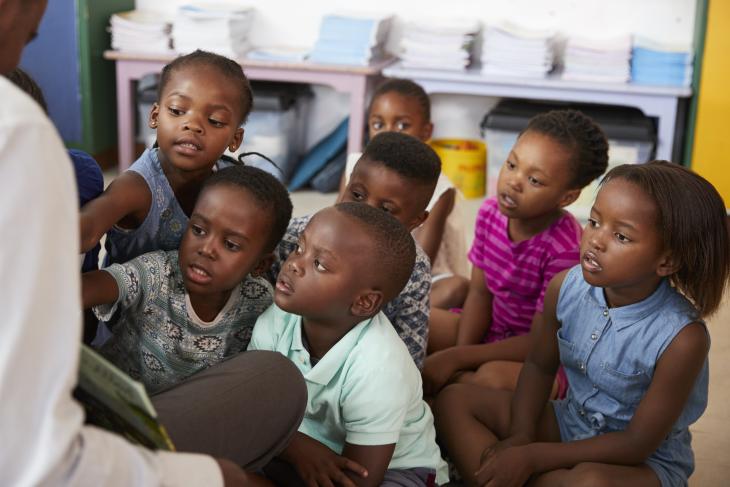McGovern-Dole Food for Education Project in Lesotho

In Lesotho, as of 2021, only 17% of children in grade 3 can read on grade level. What’s more, there is a clear disparity among children who speak different languages at home. While students who speak English at home are more likely to be literate, students who speak Sethepu at home tend to have lower literacy levels.
Implementing the FLIP Model in Lesotho
AIR, as a sub-contractor to Catholic Relief Services, and funded by U.S. Department of Agriculture’s Food for Education project, is implementing the Foundational Literacy Improvement Package (FLIP) model in Lesotho’s Thaba-Tseka, Mokhotlong, and Maseru Districts over the course of five years (2023-2027).
FLIP is a classroom-based, formative assessment teacher toolkit which uniquely integrates research and evidence into every step of implementation. It is driven by a science of reading acquisition, especially in multilingual and linguistically diverse contexts. It is designed to be integrated with existing curricula and to be adopted and owned by country governments and other program implementers.
FLIP allows teachers to understand where their students stand on a range of bilingual and multilingual literacy acquisition skills, and then provides teachers with a host of tools and supplementary materials to instruct each group of children, especially in large, multi-skill, multi-grade classrooms. These toolkits have been tested and have shown significant impact on reading outcomes.
AIR will work with Lesotho’s Ministry of Education and Training throughout the FLIP’s implementation to support capacity building at all levels of the national education system and to ensure the program’s sustainability.
Through the FLIP model, AIR will also support various literacy activities designed to engage parents and the larger community including:
- Reading readiness camps and community reading events;
- Stories in English and local languages on local radio stations; and
- Engaging parent groups around strategies to promote student literacy at home.
Throughout the project, AIR will produce technical and research reports to disseminate findings, highlight progress, and engage stakeholders.
